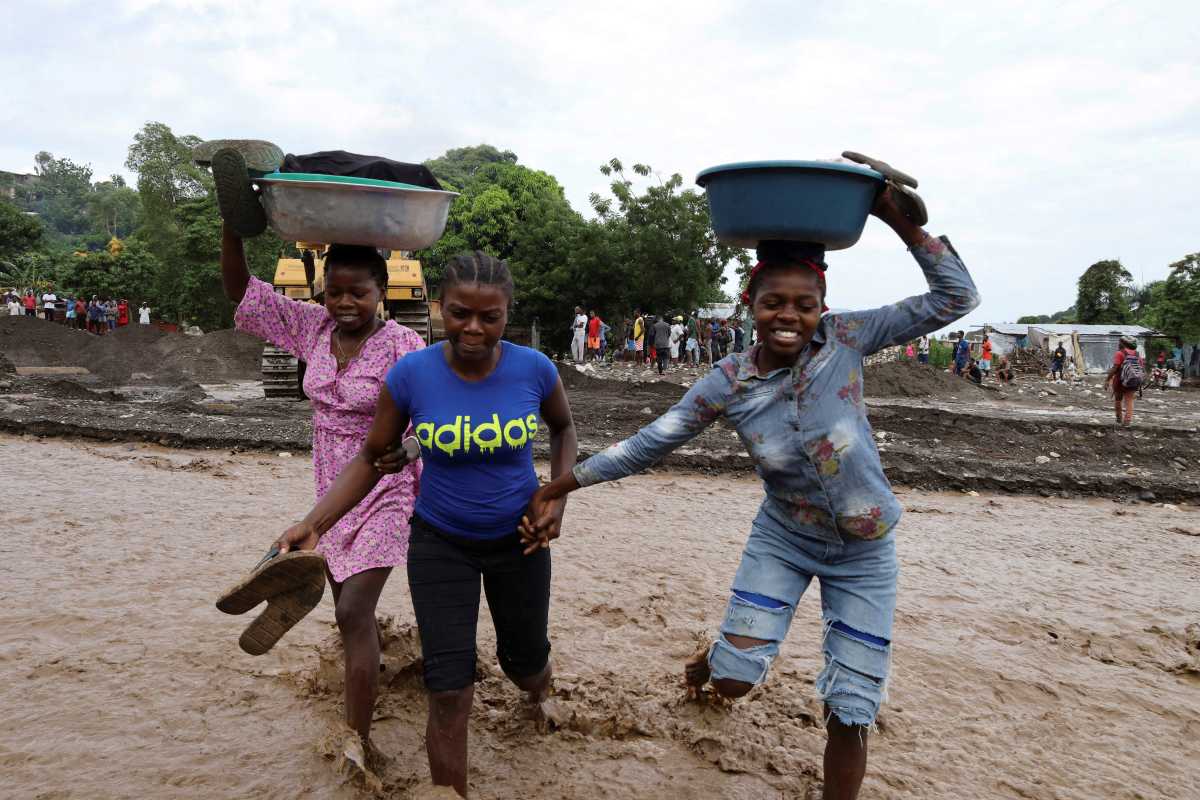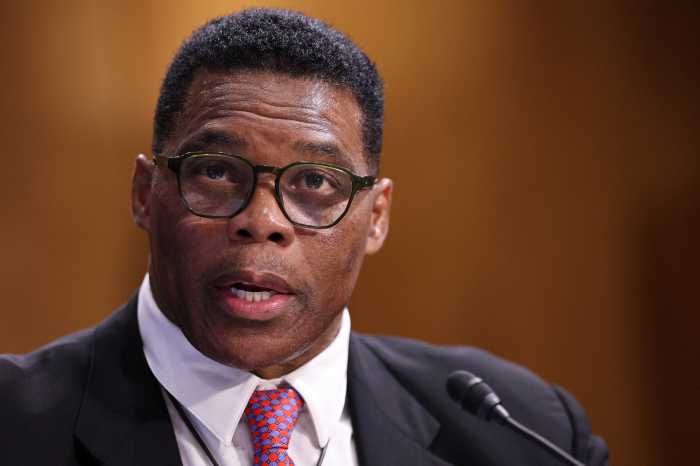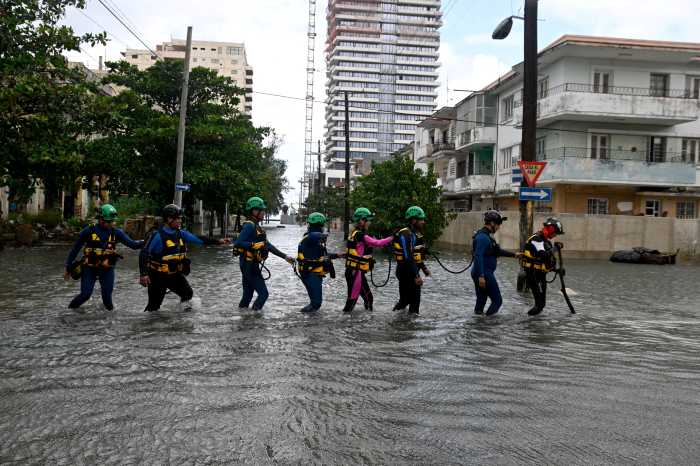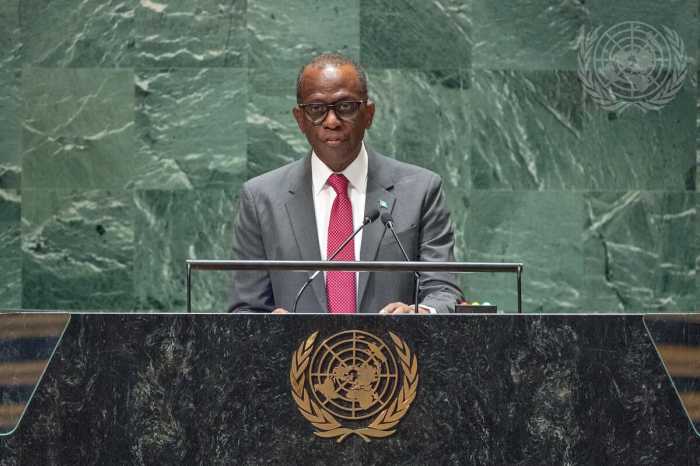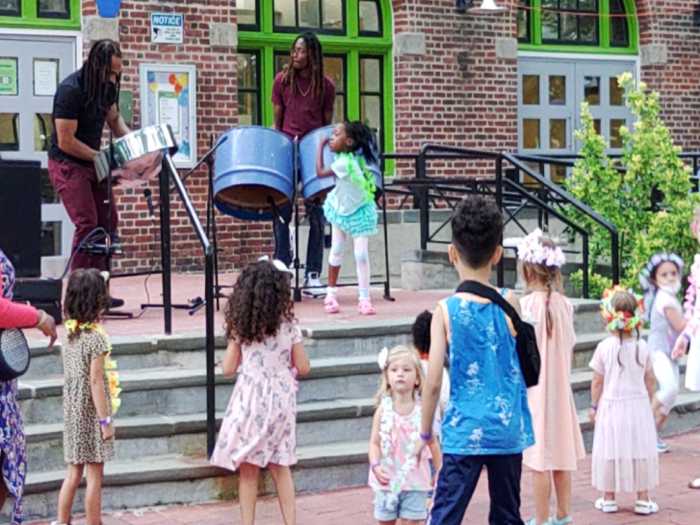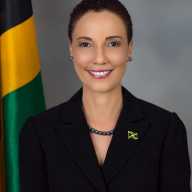Bahamas
Prime Minister Phillip Davis said that now more than ever, diplomacy is required to settle disputes, insisting that patient co-operation can still create peace.
“We live in an age when the world feels impatient with the slow work of diplomacy. When confrontation too often replaces conversation, and certainty takes the place of understanding. Many have come to believe that nations will only act out of self-interest and that multilateralism no longer holds meaning. Yet history reminds us that where diplomacy fails, instability thrives,” Davis told the opening ceremony for Diplomatic Week 2025
He said that for The Bahamas, diplomacy is the foundation of our national survival.
“We are a small island nation, but we live within a global system that moves with great speed. The tides that reach our shores carry the effects of global decisions made far beyond these islands.”
He said 50 years after the country established diplomatic relations with the European Union and with Japan as a “young, newly independent, and untested in global affairs,” it had done so on the basis that relationships “were based on respect and reciprocity.”
“We learned early that friendship between nations, like friendship between people, requires consistency, humility, and good faith. Today, we celebrate the golden jubilee of those diplomatic relationships.”
“These relationships were not built in moments of ease alone. They were built through changing governments, shifting economies, and evolving global realities. But they have endured because they rest on shared principles.”
The prime minister added that diplomacy may appear distant to some, but its outcomes have a profound impact on communities.
Dominica
The Venezuelan Ambassador to Dominica, Jose Durabio Moros Savelli, is advising that Caribbean countries unite in opposing the military buildup in waters off the South American country by the US, as he said it is essential for preserving peace in the Caribbean. In contrast, military hardware has been deployed into the area, alleging that Caracas and its leaders were involved in the illegal narcotics trade.
The US recently said it had seized survivors following a strike on a suspected drug-carrying vessel in the Caribbean.
The strike is believed to be the sixth since August and the first to result in survivors being picked up by the US military.
“We should fully preserve the peace in the region…it is not just about Venezuela. If the United States starts a war in the Caribbean, it will be bad for all of us, our economy, our people,” Savelli said.
He said the US would use nuclear weapons, and it would go through the whole region, destroying everything.
“So just the fact that they brought nuclear submarines into our waters should be worrying,” he said, noting that Caribbean countries with a policy of respect for fundamental principles and international law… should make sure there is no war in the Caribbean.”
He said that international public opinion is also essential, “so that the US government and people know that people are concerned and we do not want war.”
The recent strike by the US against vessels in the region brings the death toll to at least 28.
Last month, Trump ramped up the US military presence in the Caribbean Sea as part of his effort to address threats from Latin American drug cartels.
Guyana
A senior Guyana government minister has urged more Caribbean Community (CARICOM) countries to become full members of the Trinidad-based Caribbean Court of Justice (CCJ), which was established two decades ago to replace the London-based Privy Council as the region’s highest and final court.
Guyana’s Attorney General and Minister of Legal Affairs, Anil Nandlall, said, “It is an oddity. Some countries still prefer, six or seven decades after they have attained (independence) from Her Majesty’s government, continue to cling to an institution that is of a colonial creation – Her Majesty’s Privy Council and that remains an oddity, it flies in the face of Caribbean integration and regional unity.”
Nandlall stated that, despite regional countries advocating for regional integration and unity, some of them still did not see the need to make the CCJ their final court.
“Most of the independent Caribbean territories have not signed on, and that is a travesty. We often speak about regional integration which is being passionately perused, we passionately pursue our rights as sovereign nations, issues such as regional unity, issues such as the creation of a common single market and economy and here it is that (we) can’t get our acts together to support one of the most significant regional institutions in the Caribbean – the Caribbean Court of Justice.”
The CCJ was established on Feb. 14, 2001, and was intended to be a hybrid institution: a municipal court of last resort and an international court vested with original, compulsory, and exclusive jurisdiction in respect of the interpretation and application of the Revised Treaty of Chaguaramas.
Barbados, Belize. Dominica, Guyana, and St. Lucia are full members of the court. At the same time, all the other CARICOM countries are signatories to the Original Jurisdiction of the Court that serves as an international tribunal interpreting the Revised Treaty of Chaguaramas.
“There is hardly another institution of greater significance than the CCJ, and countries in the Caribbean, which are otherwise the champions of regional causes, are not signing up to the most premier regional institution, the CCJ,” Nandlall said, adding that the seat of the court was based in TT and yet that country had not signed on.
Haiti
Prime Minister Alix Didier Fils-Aimé has expressed his “deepest sympathies to the families of the victims of Hurricane Melissa, whose passage near the French-speaking Caribbean Community country earlier this week left 24 people dead and at least 13 others still missing.
The Haitian authorities said the storm affected several regions of the country, particularly the Grand Sud and the commune of Petit-Goåve, which was heavily affected by the flooding of the La Digue River, resulting in the deaths of at least 20 people, including 10 children.
The Director General of Civil Protection, Emmanuel Pierre, stated that ten people are still missing and that the search is ongoing.
The authorities also reported that in Dame-Marie (Grande Anse), one person was injured when a tree fell on him while riding his motorcycle.
The National Emergency Operations Center (COUN) reported that 13,900 people have taken refuge in at least 121 active shelters.
Two schools, located in Dame-Marie and Duchity, had their roofs torn off by the wind, and in Beaumont and Pestel, several of the makeshift dwellings were also damaged. Ten of the 11 municipalities in the Nippes department have experienced flooding, causing damage.
Several banana plantations and livestock have been destroyed, with the authorities stating that a detailed assessment of agricultural losses is underway.
St. Kitts and Nevis
The St. Kitts and Nevis government says it is getting closer to restoring the capital’s 24-hour water supply after it announced progress on the two-million-gallons-per-day desalination plant at the CA Paul Southwell Industrial Park, which is “well advanced.”
Public Infrastructure Minister Konris Maynard stated that the plant was recently powered up for the first time and that testing of the individual treatment stages, such as the reverse osmosis trains, will continue for several weeks.
“We made a commitment that we will undertake to ease and significantly improve the water situation of the federation, in particular, St Kitts, and we are well on the way to do so,” Maynard said.
The authorities state that when operational, the desalination plant will provide a regular and dependable source of water to meet the increasing demands of households and industries.
They also stated that efforts to improve the water supply outside the Basseterre area are ongoing, and that the results of the recent hydrological drone survey identified 17 promising sites where potable water is likely stored underground.
Drilling of new wells is expected to commence in December.
The report from the survey has been presented to the Water Services Department, and Maynard said that of the 17 sites, “we intend to pick the first best 10 of those sites as we go through the report to identify which ones have the best production capabilities.”
Compiled by Devika Ragoonanan


